Supreme court rules Rwanda plan unlawful: a legal expert explains the judgment, and what happens next
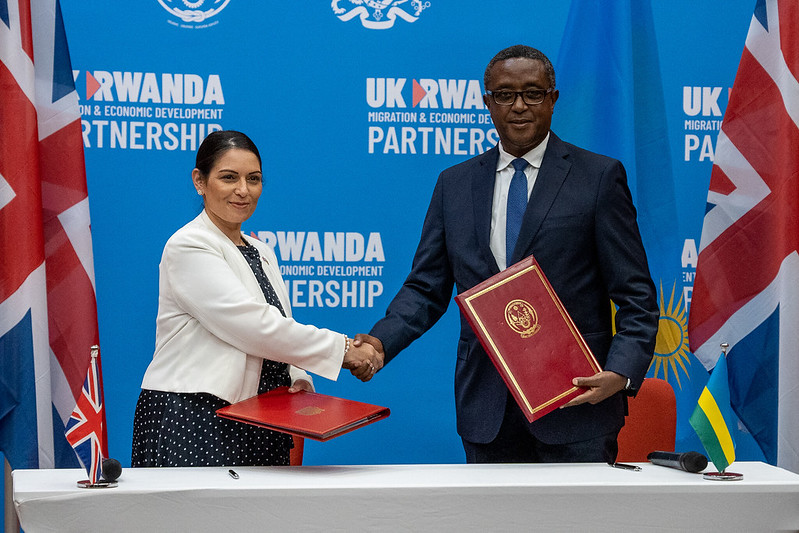
Before publishing this article unaltered, I draw your attention to these excerpts:
…
It is important to note that the supreme court’s decision is not a comment on the political viability of the Rwanda plan, or on the concept of offshoring asylum processes generally. The ruling focused only on the legal principle of non-refoulement, and determined that in this respect, Rwanda is not a “safe third country” to send asylum seekers.
…
This ruling is likely to revive discussion about the UK leaving the European convention on human rights (ECHR), which holds the UK to the non-refoulement obligation. Some Conservatives, including the former home secretary Suella Braverman, have argued that leaving the convention would make it easier to pass stronger immigration laws.But while handing down the supreme court judgment, Lord Reed emphasised that there are obligations towards asylum seekers that go beyond the ECHR. The duty of non-refoulement is part of many other international conventions, and domestic law as well. In other words, exiting the ECHR would not automatically make the Rwanda plan lawful or easier to implement.
…
So it would appear that UK is not going to be sending refugees to Rwanda despite Rishi Sunak and Conservative claims that it will.
Supreme court rules Rwanda plan unlawful: a legal expert explains the judgment, and what happens next
Devyani Prabhat, University of Bristol
The UK supreme court has unanimously ruled that the government’s plan to send asylum seekers to Rwanda is unlawful.
Upholding an earlier decision by the court of appeal, the supreme court found that asylum seekers sent to Rwanda may be at risk of refoulement – being sent back to a country where they may be persecuted, tortured or killed.
The courts cited extensive evidence from the UN refugee agency (UNHCR) that Rwanda does not respect the principle of non-refoulement – a legal obligation. The UNHCR’s evidence questioned the ability of Rwandan authorities to fairly assess asylum claims. It also raised concerns about human rights violations by Rwandan authorities, including not respecting non-refoulement with other asylum seekers.
It is important to note that the supreme court’s decision is not a comment on the political viability of the Rwanda plan, or on the concept of offshoring asylum processes generally. The ruling focused only on the legal principle of non-refoulement, and determined that in this respect, Rwanda is not a “safe third country” to send asylum seekers.
The ruling is another blow to the government’s promise to “stop the boats”. And since the Rwanda plan is at the heart of its new Illegal Migration Act, the government will need to reconsider its asylum policies. This is further complicated by Conservative party infighting and the firing of home secretary Suella Braverman, just two days before the ruling.
How did we get here?
For years, the UK government has been seeking to reduce small boat arrivals to the UK. In April 2022, the UK and Rwanda signed an agreement making it possible for the UK to deport some people seeking asylum in Britain to Rwanda, without their cases being heard in the UK. Instead, they would have their cases decided by Rwandan authorities, to be granted (or rejected) asylum in Rwanda.
While the Rwanda plan specifically was found to be unlawful, the government could, in theory, replicate this in other countries so long as they are considered “safe” for asylum seekers.
The government has not yet sent anyone to Rwanda. The first flight was prevented from taking off by the European court of human rights in June 2022, which said that British courts needed to consider all human rights issues before starting deportations.
A UK high court then decided in December 2022 that the Rwanda plan was lawful.
Catch up on our other coverage of the Rwanda plan:
• Suella Braverman is wrong about the UN refugee convention being ‘not fit for purpose’ – here’s why
• The government passed a major immigration law last year – so why is it trying to pass another one?
• ‘A toxic policy with little returns’ – lessons for the UK-Rwanda deal from Australia and the US
Ten asylum seekers from Syria, Iraq, Iran, Vietnam, Sudan and Albania challenged the high court ruling, with the support of the charity Asylum Aid. Their claim was about whether Rwanda meets the legal threshold for being a safe country for asylum seekers.
The court of appeal said it was not and that asylum seekers risked being sent back to their home countries (where they could face persecution), when in fact they may have a good claim for asylum.
The government has since passed the Illegal Migration Act. The law now states that all asylum seekers arriving irregularly (for example, in small boats) must be removed to a safe third country. But now that the Rwanda deal has been ruled unlawful, there are no other countries that have said they would take asylum seekers from the UK.
What happens next?
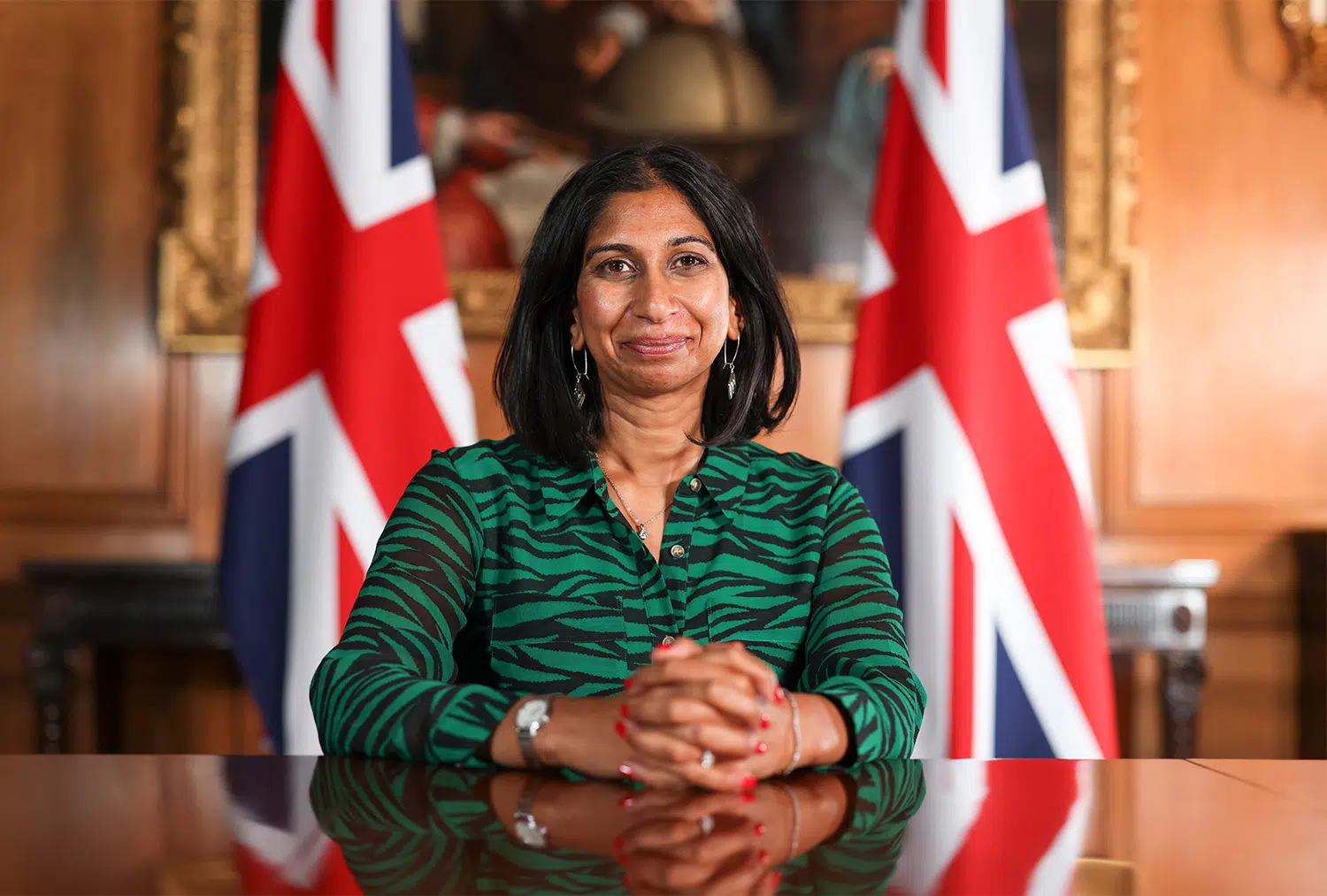
It is clear that the government’s asylum policies will need rethinking. Should another country now be designated as a safe country and different arrangements put in place, these will probably be subject to further legal challenges, including in the European court of human rights and in British courts.
This ruling is likely to revive discussion about the UK leaving the European convention on human rights (ECHR), which holds the UK to the non-refoulement obligation. Some Conservatives, including the former home secretary Suella Braverman, have argued that leaving the convention would make it easier to pass stronger immigration laws.
But while handing down the supreme court judgment, Lord Reed emphasised that there are obligations towards asylum seekers that go beyond the ECHR. The duty of non-refoulement is part of many other international conventions, and domestic law as well. In other words, exiting the ECHR would not automatically make the Rwanda plan lawful or easier to implement.
The prime minister, Rishi Sunak, has said that he is working on a new treaty with Rwanda and is prepared to change domestic laws to “do whatever it takes to stop the boats”.
The UK is not the only country to attempt to off-shore asylum processing. Germany and Italy have recently been considering finding new safe third countries to accept asylum seekers as well.
But ensuring these measures comply with human rights obligations is complicated. International law requires states to provide sanctuary to those fleeing persecution or risk to their lives. As this ruling shows, the UK is not going to find an easy way out of these obligations.![]()
Devyani Prabhat, Professor of Law, University of Bristol
This article is republished from The Conversation under a Creative Commons license. Read the original article.
Hundreds of Thousands Join London March to Demand ‘Cease-Fire Now’ in Gaza
Original article by JAKE JOHNSON republished from Common Dreams under Creative Commons (CC BY-NC-ND 3.0).
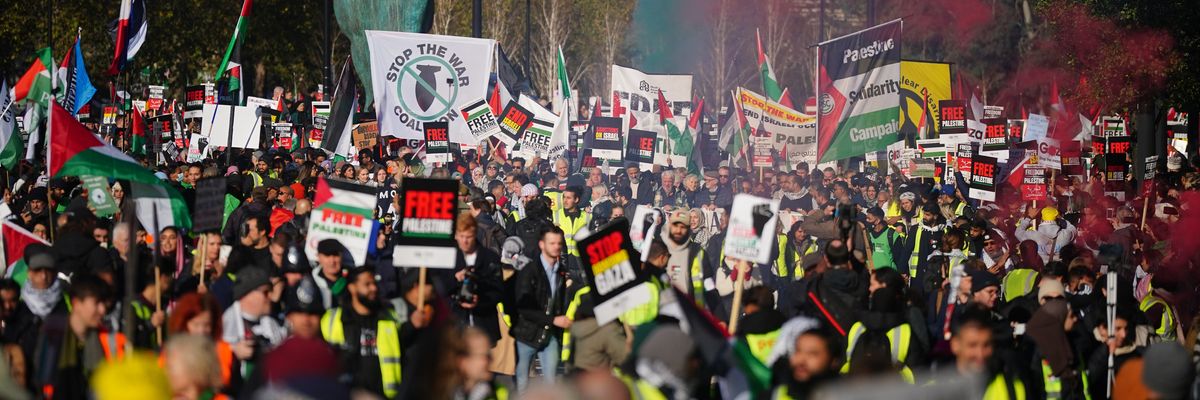
“In our thousands, in our millions, we are all Palestinians,” demonstrators chanted at Saturday’s march, described as one of the largest political protests in U.K. history.
Hundreds of thousands of people took to the streets of London on Saturday to demand an immediate cease-fire in Gaza as Israeli forces ramped up their aerial and ground assault on the Palestinian enclave’s hospitals and other civilian infrastructure, intensifying the territory’s humanitarian crisis.
Described as one of the largest political demonstrations in U.K. history, the march moved ahead despite criticism from British Home Secretary Suella Braverman and Tory Prime Minister Rishi Sunak, who suggested earlier in the week that the protest should have been banned by London police given that it coincided with Armistice Day. Braverman accused the police of giving favorable treatment to “pro-Palestinian mobs.”
“I am horrified by the tone, language, and incitement our own government is using to whip up hatred against its own citizens—citizens who are standing up in solidarity with the besieged and bombed citizens of Gaza,” British Army veteran and march participant Nadia Mitchell wrote for OpenDemocracy. “Personally, I cannot think of a more appropriate day to demand a cease-fire than on the day we remember the mother of all cease-fires, to remember and honor those who sacrificed their lives in pursuit of peace and an end to war.”
Some U.K. lawmakers, including former Labour leader Jeremy Corbyn and Labour MP John McDonnell, joined Saturday’s march alongside hundreds of thousands of peace activists, union members, and people of all faiths.
“In our thousands, in our millions, we are all Palestinians,” demonstrators chanted.

Reuters reported that “police said far-right groups opposing the march were present in central London in ‘significant numbers,’ leading to skirmishes with officers near the Cenotaph war memorial, close to the Houses of Parliament and in Westminster.”
“Officers in riot gear sought to contain the far-right protesters, some of whom threw bottles at them, and police vehicles sped around the city to respond to reports of tensions in the streets,” the outlet added.
Participants in the mass demonstration, meanwhile, marched from London’s Hyde Park to the U.S. Embassy to protest the Biden administration’s unwavering military and political support for the Israeli government as the death toll in Gaza continues to climb.
The head of the World Health Organization told the United Nations Security Council on Friday that Israel’s bombing and siege are killing one child on average every 10 minutes in Gaza.
“Nowhere and no one is safe,” said WHO Director-General Tedros Adhanom Ghebreyesus.
Mohammed Abu Mughaisib, deputy medical coordinator for Doctors Without Borders in Gaza, toldThe Washington Post on Saturday that hospitals in northern Gaza have become “a graveyard” due to mounting Israeli attacks.
Medical workers at al-Nasr pediatric hospital were forced to leave babies in incubators behind as they evacuated south, Abu Mughaisib said.
“The medical staff evacuated because of the shelling on the pediatric hospital, and they couldn’t save the babies to take them out, so they left five babies alone in the intensive care on the machines and the ventilators,” he told the newspaper. “That’s the situation: leaving babies now alone on the ventilators.”

Saturday’s march was organized by the Palestine Solidarity Campaign (PSC), Stop the War Coalition, Campaign for Nuclear Disarmament, and other advocacy groups.
“We march to call for an end to the indiscriminate bombing of civilians and a #CeasefireNOW,” PSC director Ben Jamal wrote on social media. “We march in respect of the rights of all to live in freedom and with dignity.”
The demonstration is part of a growing international movement supporting a cease-fire in the Gaza Strip as Western leaders, including Sunak and U.S. President Joe Biden, refuse to demand an end to Israel’s siege and relentless bombing campaign.
Earlier this week, as Israeli forces encircled northern Gaza, Biden told reporters that there is “no possibility” of a cease-fire. Israeli Prime Minister Benjamin Netanyahu reportedly rejected a proposed five-day cease-fire in exchange for the release of some of the hostages held by Hamas.
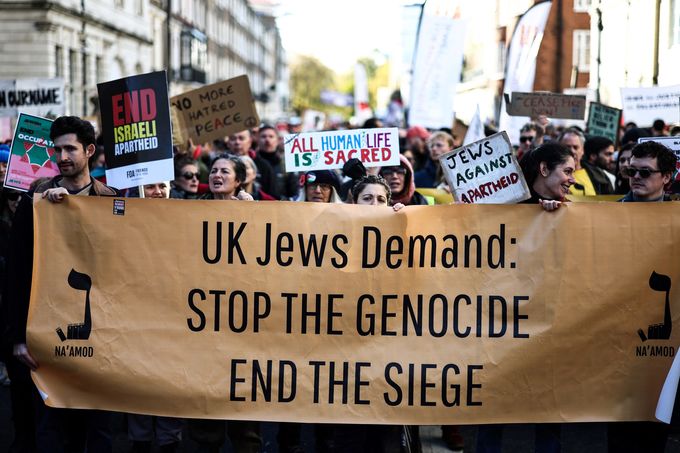
Video footage of Saturday’s march shows the streets of central London packed with demonstrators expressing solidarity with the people of Gaza and demanding an end to Israel’s assault, which began after a deadly Hamas-led attack in southern Israel last month.
An estimated 300,000 people took part in Saturday’s march, according to London authorities.
“This footage shows the true will of the British people,” wrote Ahmed Alnaouq, a London-based Palestinian journalist and co-founder of the nonprofit We Are Not Numbers. “Hundreds of thousands are protesting peacefully despite rounds of vicious smear campaigns and intimidation. “All say in one word: CEASE-FIRE NOW!”
Original article by JAKE JOHNSON republished from Common Dreams under Creative Commons (CC BY-NC-ND 3.0).
Morning Star: This Armistice Day, we march for peace
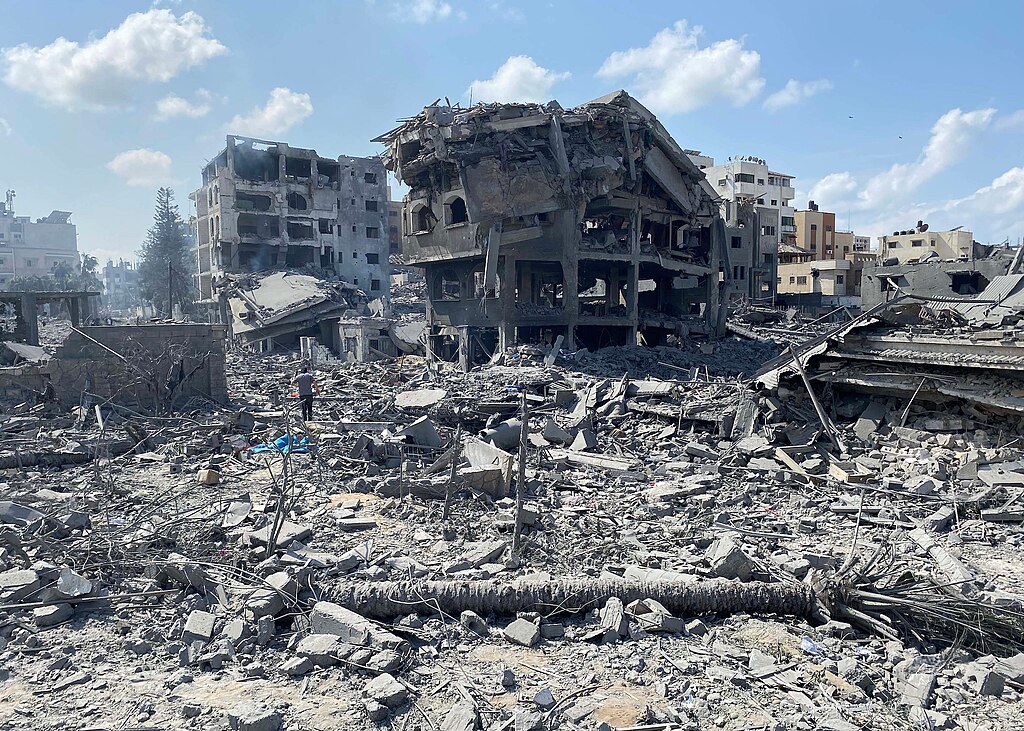
https://www.morningstaronline.co.uk/article/armistice-day-we-march-peace
SUELLA BRAVERMAN may have done one thing for the protesters she has tried so hard to silence — ensure tomorrow’s Armistice Day march for peace has been the talk of the country all week.
Organisers believe the London demo will exceed even the half a million marchers of a fortnight ago. In some cities coach companies report having run out of coaches for hire — not something anti-war activists can remember happening since the biggest march in British history, that against war in Iraq, on February 15 2003.
The Home Secretary blusters that the “public expects” the police to crack down on these marches. Actually all polls show large majorities in favour of an immediate ceasefire in Gaza, which is precisely what the march demands.
It is not the Tory government with its stated desire that Israel “win” its genocidal assault on the Palestinians, nor the Labour opposition whose leadership continues to back a war in which tanks besiege hospitals and bombers flatten schools, who speak for public opinion. It is the marchers.
…
https://www.morningstaronline.co.uk/article/armistice-day-we-march-peace
Greens reject Home Secretary’s ‘dangerous’ comments and call for massive turn out for ceasefire in Gaza
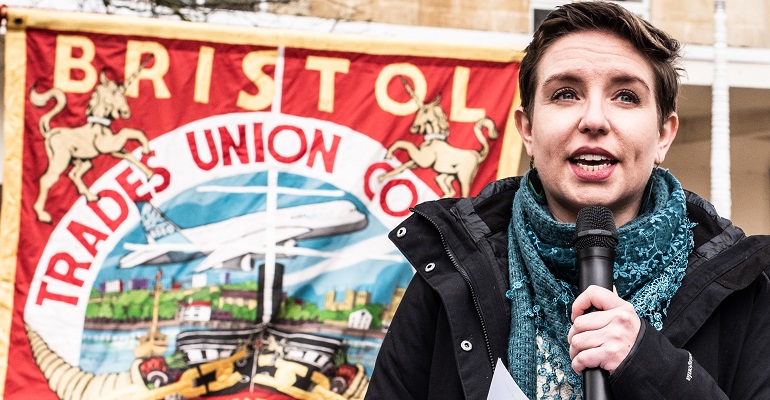
Green Party co-leader Carla Denyer urged a massive turnout on tomorrow’s pro-ceasefire march, as “the strongest way to send a clear message that people want a ceasefire and have no time for Home Secretary Suella Braverman’s toxic rhetoric.”
She said
“This is a march to call for a ceasefire – an Armistice – that is urgently needed. The Green Party wants to see the unconditional release of hostages and the opening up of humanitarian aid to allow a dialogue about a long-term solution that ends the occupation and offers peace and security to Palestinians and Israelis alike.
“The Home Secretary’s comments are dangerous, inciting division at a time when we need to bring people together.
“Armistice Day and Remembrance Sunday are national moments of reflection and must be respected. The organisers of the pro-ceasefire march have been really clear that they have no intention of disrupting Armistice Day events. Indeed, I would say that Armistice Day is a very appropriate moment for people to be calling for a ceasefire – an armistice – so that civilians in Israel and Gaza can be protected.
“The Gaza ceasefire call has the backing of the United Nations, humanitarian aid agencies, three quarters of the British public, and growing numbers of countries, including Ireland and France. Hundreds of thousands have been out on the streets peacefully calling for an end to violence.
“The Labour leadership needs to do more than stand on the sidelines. I invite them to throw their full support behind the growing call for a ceasefire.”